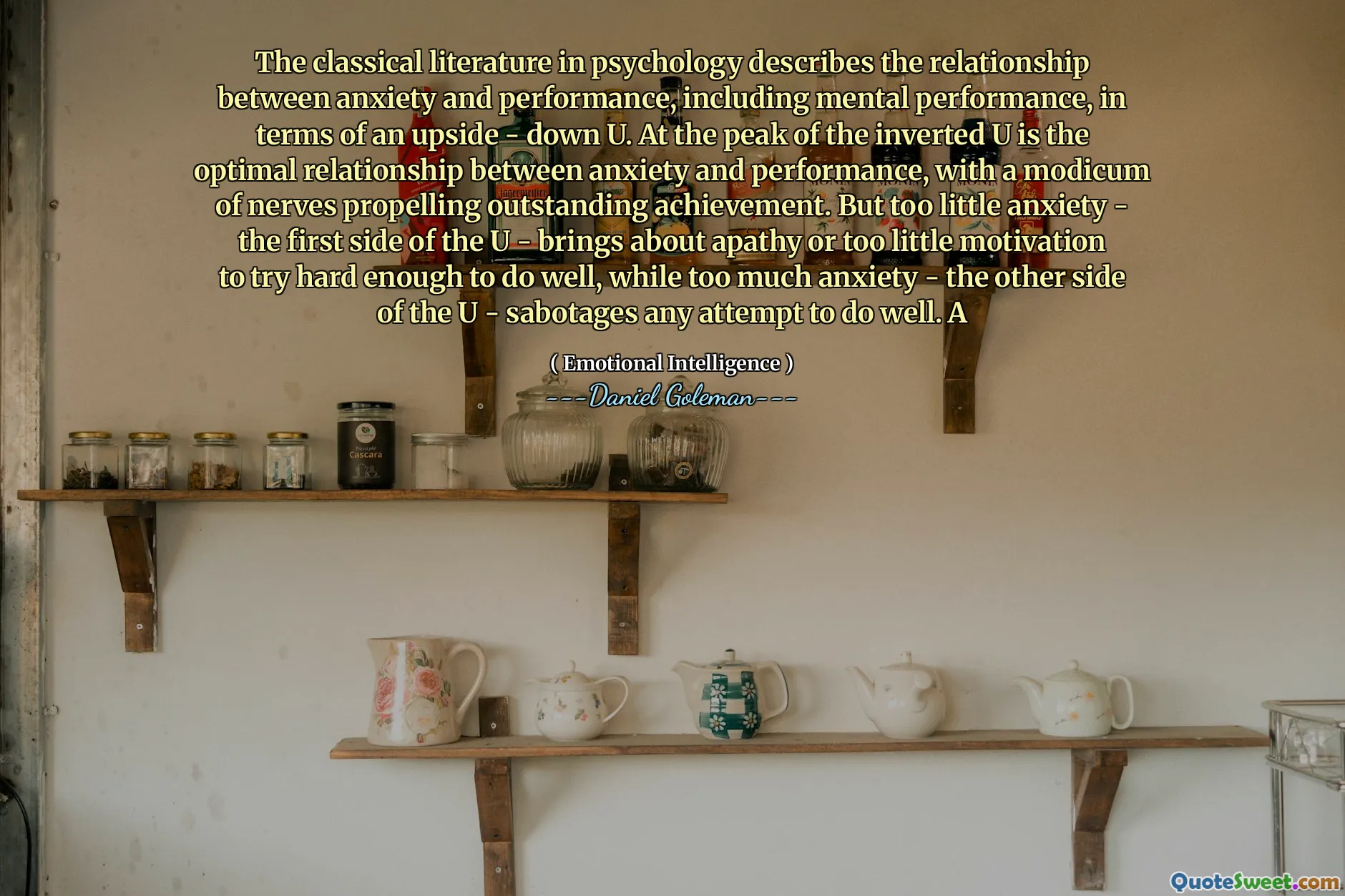
The classical literature in psychology describes the relationship between anxiety and performance, including mental performance, in terms of an upside - down U. At the peak of the inverted U is the optimal relationship between anxiety and performance, with a modicum of nerves propelling outstanding achievement. But too little anxiety - the first side of the U - brings about apathy or too little motivation to try hard enough to do well, while too much anxiety - the other side of the U - sabotages any attempt to do well. A
This quote vividly portrays the delicate balance between anxiety and performance, a concept often explored in emotional intelligence and psychology. It emphasizes that a moderate level of anxiety can act as a catalyst for peak performance by providing a healthy dose of motivation and alertness. When individuals experience a manageable amount of nervousness, they tend to be more focused, energized, and driven to perform at their best. Conversely, the quote highlights the pitfalls of extremes at either end of the spectrum. Insufficient anxiety can lead to complacency, lack of motivation, and ultimately, underachievement. Without that heightened emotional state, individuals may not feel compelled to put in the necessary effort, resulting in apathy or boredom. On the other side, excessive anxiety can be detrimental, causing stress, distraction, and even burnout, which impair mental functions needed for successful performance. Recognizing this inverted U-shape relationship is crucial for managing both personal and professional development. It underscores the importance of cultivating emotional regulation skills to maintain optimal arousal levels. Achieving this balance can enhance resilience, motivation, and productivity, fostering a healthier approach to goals and challenges. Importantly, understanding how to modulate anxiety can help individuals avoid burnout while maximizing their potential, making this insight exceptionally relevant for anyone striving for self-improvement, effective learning, or high performance.








